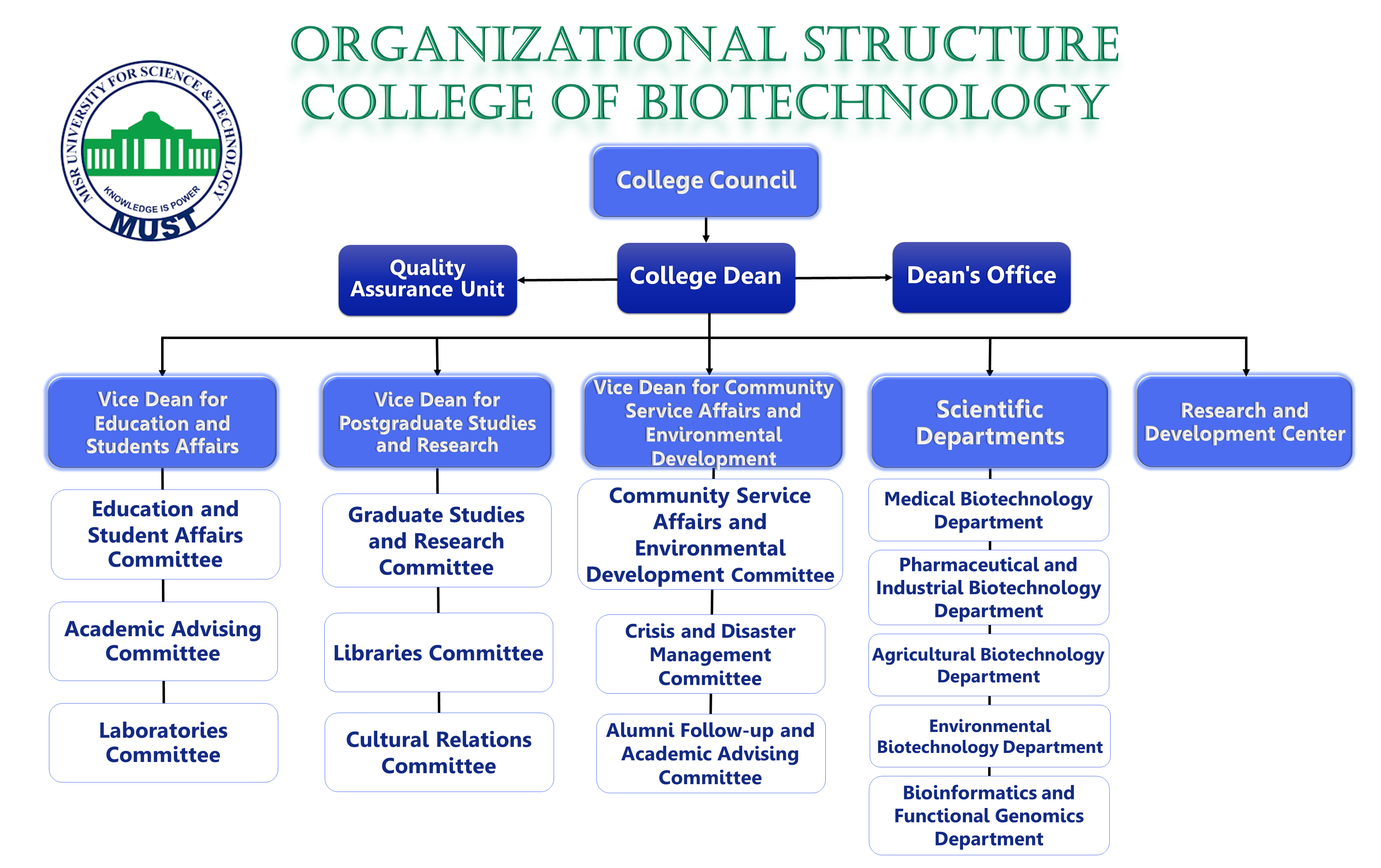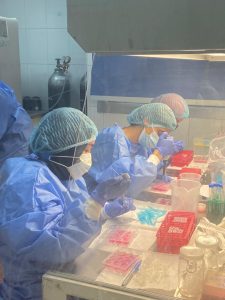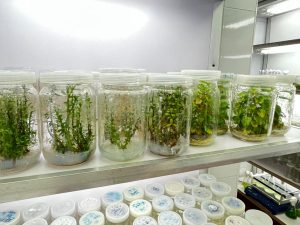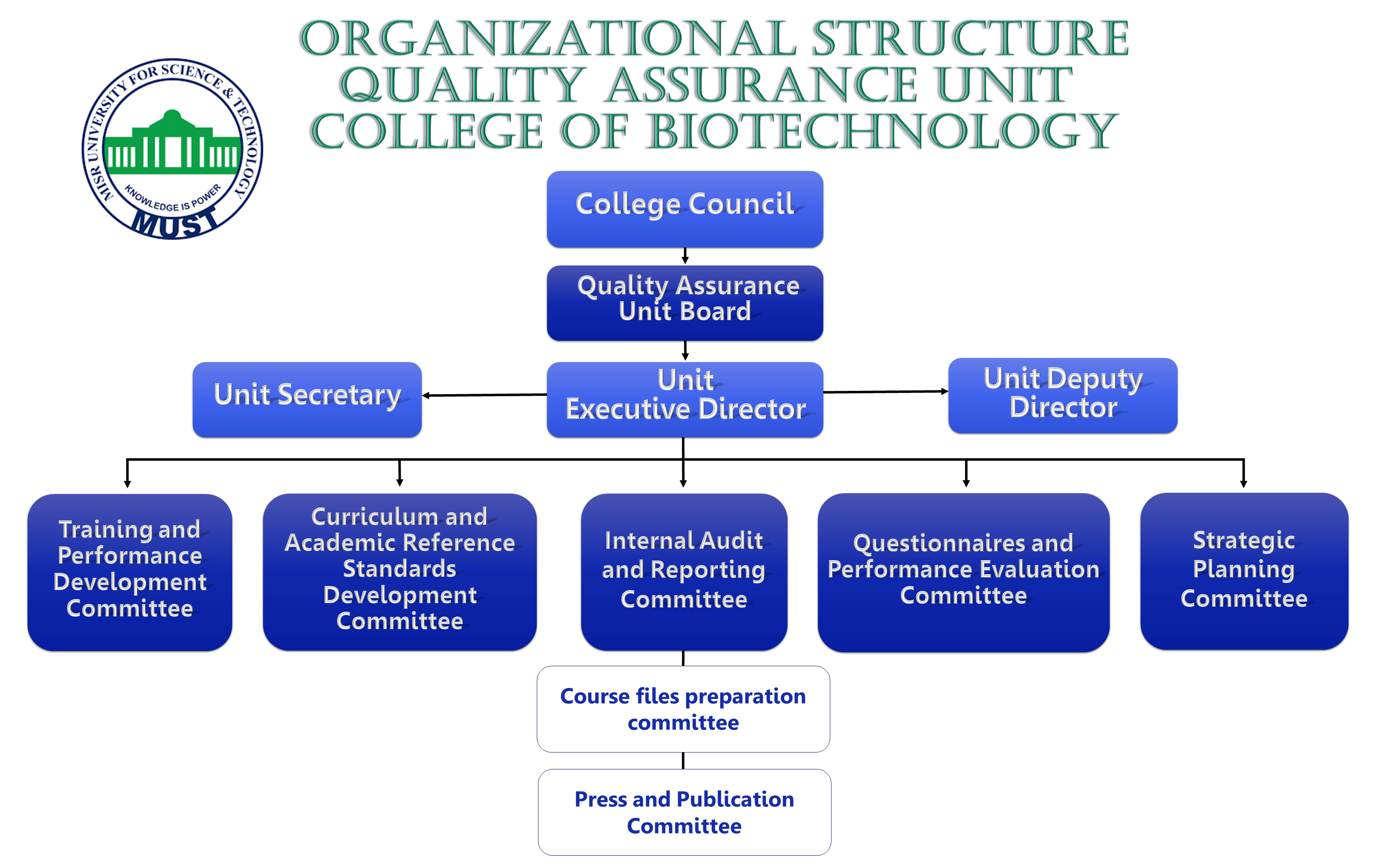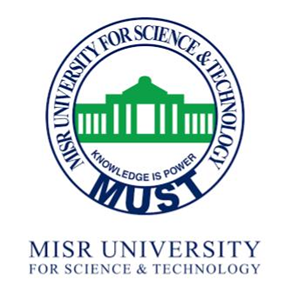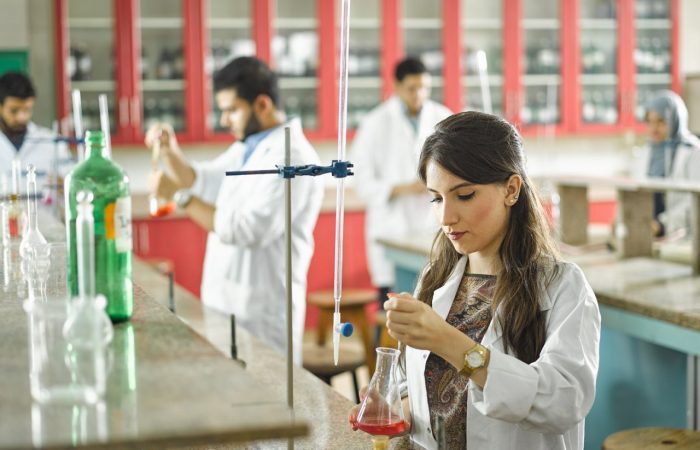The College of Biotechnology, Misr University for Science and Technology was established in 2006 by Republican Decree No. 283 of 2006.
Biotechnology is a field of science that combines biology with technology to develop innovative solutions for various sectors, including healthcare, agriculture, industry, and environmental conservation. It involves the use of living organisms, such as cells, bacteria, and plants, as well as their components and derivatives, to create new products, improve processes, and address societal challenges.
At its core, Biotechnology harnesses the fundamental knowledge of biological systems and manipulates them at a molecular level to achieve desired outcomes. This manipulation can involve genetic engineering where the DNA of organisms is modified to introduce new traits or enhance existing ones. Biotechnology also encompasses techniques for isolating, characterizing, and manipulating biological molecules, such as proteins and enzymes, for various applications. Also, genome editing is a powerful technique in Biotechnology that allows scientists to make precise changes to the DNA sequence of an organism. It involves modifying the genetic material (genome) of an organism by adding, deleting, or altering specific DNA sequences.
In the field of healthcare, Biotechnology has revolutionized the development of pharmaceuticals, diagnostics, and therapies. It has enabled the production of recombinant proteins, such as insulin and growth factors, through genetically engineered microorganisms or cell lines. Biotechnology has also contributed to the development of advanced diagnostic tools, such as DNA sequencing and molecular diagnostics, which allow for early detection and personalized treatment of diseases. Recently, almost all COVID-19 vaccines were produced mainly with the aid of Biotechnology.
In agriculture, Biotechnology has played a crucial role in improving crop yield, resistance to pests and diseases, and improving nutritional content. Genetically modified plants have been developed to enhance traits such as drought tolerance, herbicide resistance, and nutritional value, offering potential solutions to global food security challenges, and hence Biotechnology is at the core of addressing most of the Sustainable Development Goals (SDGs). Genetically modified animals are one of the applications of Agricultural Biotechnology. These modified animals are crucial in studying human diseases and developing potential treatments, producing therapeutic proteins, antibodies, hormones, and vaccines. Also, it can be engineered to exhibit desirable traits such as disease resistance, improved growth rate, increased fertility, and enhanced meat quality.
Industrial Biotechnology focuses mainly on utilizing biological systems to produce valuable chemicals, biofuels, and materials sustainably. This approach often involves the use of microorganisms or enzymes to carry out specific chemical reactions, reducing the reliance on traditional chemical synthesis methods that can be energy-intensive and harmful to the environment.
Moreover, Biotechnology contributes to environmental conservation through applications such as bioremediation, where microorganisms are employed to degrade pollutants and clean up contaminated sites. It also involves the development of renewable and bio-based resources to replace fossil fuels and reduce greenhouse gas emissions.
The field of Biotechnology continues to evolve rapidly, driven by advancements in areas such as Genomics, Proteomics, Bioinformatics, and Nanotechnology. These advancements are expanding our understanding of biological systems and providing new tools for manipulating them.
Therefore, Biotechnology holds great promise for addressing global challenges in areas such as healthcare, food production, energy, and environmental sustainability, making it a crucial and exciting field of study and innovation.
The College of Biotechnology comprises the following academic departments.


